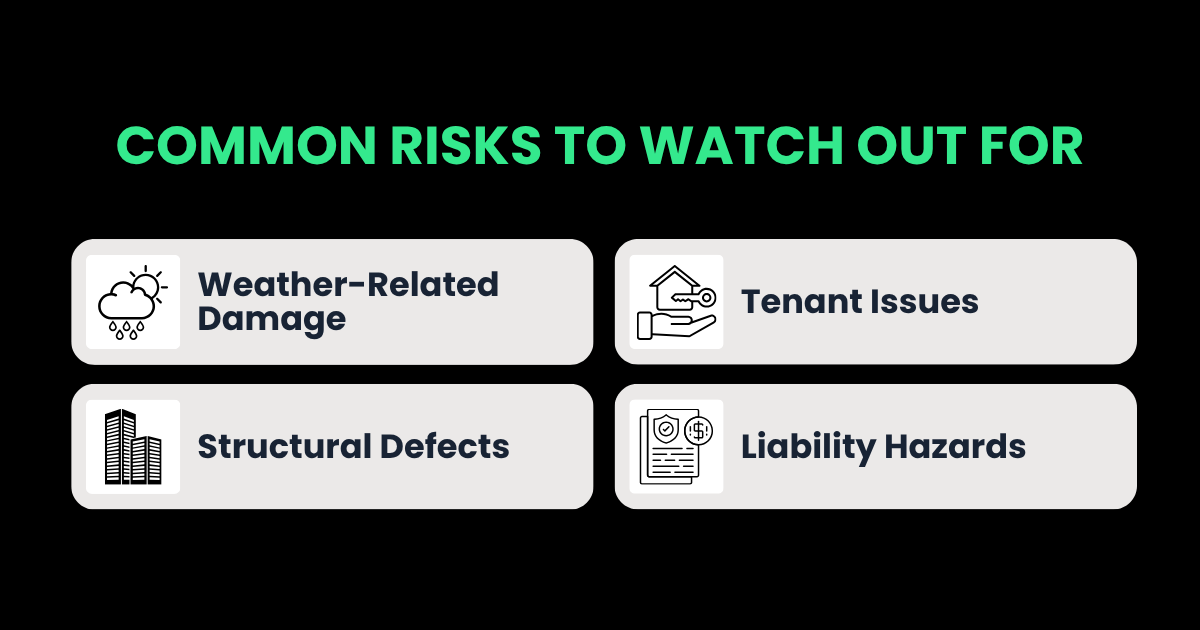
Contents
Owning a block of units without a strata title comes with the unique mix of opportunities and responsibilities. That’s why it’s important to know the ins and outs of protecting your investments.
Non-strata blocks, think duplexes or larger complexes where individual owners or a small group manage the whole property, require a tailored approach to insurance.
Keen to explore? Let’s break down the key coverage options for insuring your non-strata block of units.

What Makes Non-Strata Blocks Different
Owning a non-strata block of units means you’re typically responsible for the entire building, from the roof to the foundations, rather than sharing that load through a body corporate.
Multi-unit residential properties that operate under non-strata titles give owners more control but also more direct exposure to risks.
This setup can be appealing for flexibility but it shifts the burden onto you (or your group) to secure comprehensive insurance that covers everything under one roof.
In 2025, with rising repair costs due to inflation and more frequent weather events, getting the right coverage has become a necessity.
Strata vs. Non-Strata: How Ownership Affects Your Insurance Choices

If you’ve ever compared apples to oranges, strata and non-strata insurance might feel similar.
Strata schemes, common in larger apartment blocks, involve a body corporate that handles a collective policy for shared areas like hallways, roofs and gardens. Owners then add Contents or Landlord Cover for their individual units.
Non-strata flips this. There’s no central body, so you insure the full building as a single entity. This means broader policies that encompass both structure and contents across all units.
For instance:
- Strata Insurance often excludes individual unit interiors, leaving those to personal policies.
- Non-Strata Insurance bundles everything, making it ideal for investor-owned blocks where units are rented out.
Key Takeaway: Non-strata demands a holistic policy to avoid gaps, especially if tenants occupy multiple units.
Key Coverage Options for Your Non-Strata Units
When insuring your non-strata block of units, focus on policies that address the building as a whole while protecting your rental income.
Here are the essentials:
- Building Coverage: This covers the physical structure (e.g., walls, roof, plumbing and fixtures) against events such as storms, fires or floods.
For a typical block, expect coverage up to the replacement value with costs varying depending on size.
It’s non-negotiable for non-strata owners, as you’re liable for the lot. - Landlord Insurance: Tailored for rental properties, this extends building cover to include loss of rent (up to 12 months if uninhabitable), tenant damage and theft by renters.
This can prevent financial hits from disputes or defaults. - Public Liability Coverage: Protects against claims if someone injures themselves on your property.
This is crucial for blocks with common access points.
These options often come bundled in a Non-Strata Insurance policy, simplifying things for non-strata setups.
Common Risks Facing Non-Strata Units in Australia

Non-strata blocks share many everyday vulnerabilities but without a strata committee, you’re on the front line.
Here’s what to watch for:
- Weather-Related Damage: Storms and bushfires top the list. Non-strata roofs and gutters bear the full brunt.
- Tenant Issues: Disputes leading to deliberate damage or unpaid rent affect rental properties.
- Structural Defects: Leaks from poor waterproofing or plumbing failures are common in older blocks.
- Liability Hazards: Slips on uneven paths or in laundries can result in public liability claims in multi-unit dwellings.
Spotting these early can make all the difference. Regular inspections are your best friend here.
Cost-Saving Tips for Insuring Your Non-Strata Block
Who doesn’t love trimming expenses without skimping on protection?
Premiums for non-strata blocks can feel steep but smart moves can help shave your bill.
You can try these:
- Opt for a Higher Excess: Bumping your excess can cut premiums as long as you can cover the out-of-pocket cost.
- Bundle Policies: Combine Building Coverage, Landlord Insurance and Public Liability into one package. Many insurers offer discounts for multi-cover deals.
- Enhance Security Features: Install smoke alarms, deadlocks or CCTV; this can lower rates through reduced risk profiles.
- Pay Annually: Skip monthly instalments for a one-off payment, saving up on admin fees across providers.
- Accurate Valuations and Maintenance: Get a professional rebuild assessment to avoid over-insuring and fix minor issues like leaks promptly to qualify for no-claims bonuses.
- Shop Around with a Broker: An insurance broker can help you compare quotes from multiple insurers, often uncovering deals that save owners hundreds yearly.
These tweaks keep your non-strata block insured without unnecessary extras.
Secure Your Non-Strata Block with Expert Guidance
Insuring your non-strata block of units doesn’t have to be overwhelming. It’s about choosing the right mix of Building Insurance, Landlord Insurance and Public Liability Coverage to match your setup.
By understanding the differences from strata, tackling common risks head-on and applying these cost-saving tips, you can protect your investment and your peace of mind.
Here at Tank Insurance, our team is passionate about finding comprehensive insurance solutions for property owners like you.
Got questions about premiums or need a quote? We’re just a call away. Contact us at 02 9000 1155 or send a message through [email protected].
Let’s chat about insuring your non-strata block of units today!